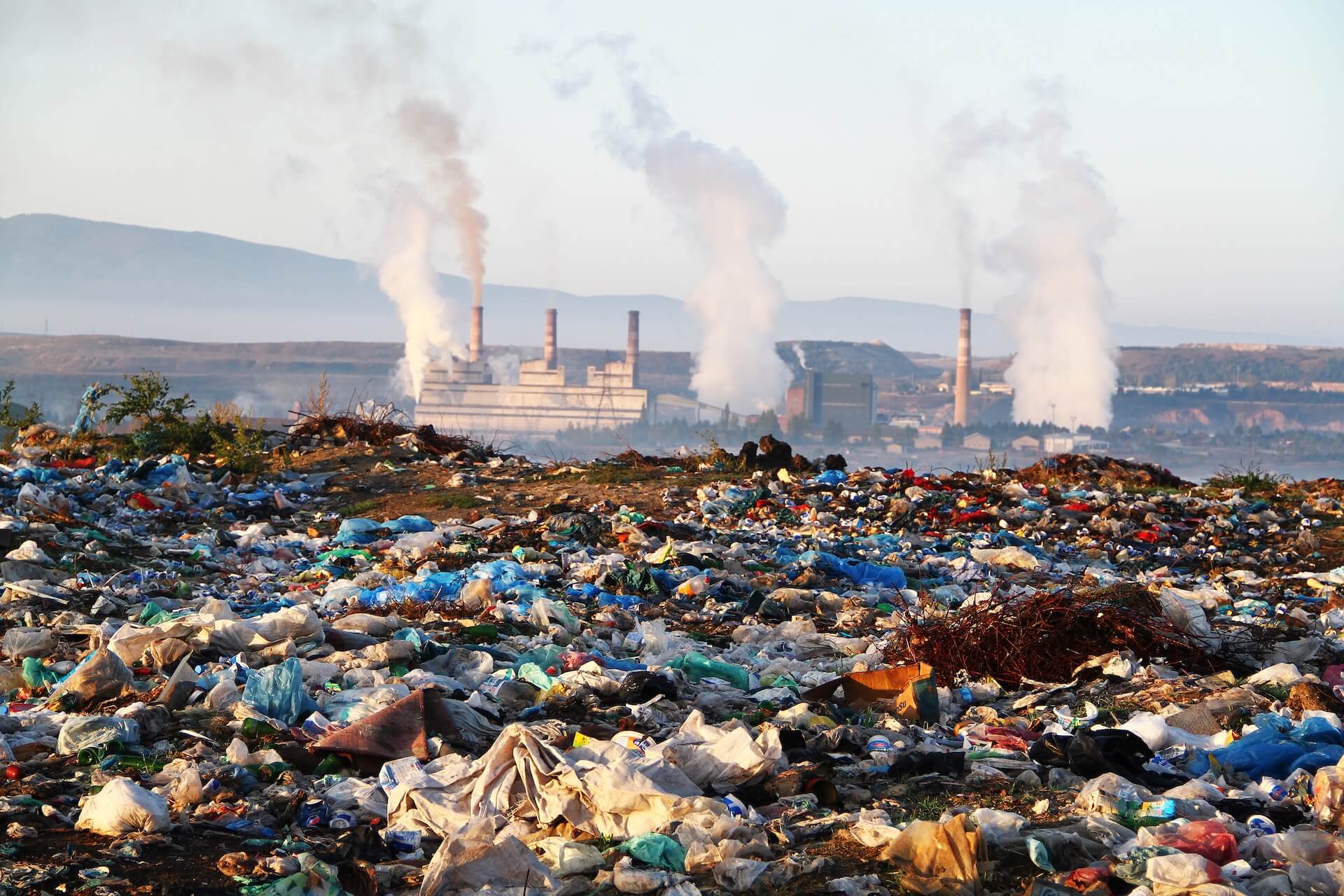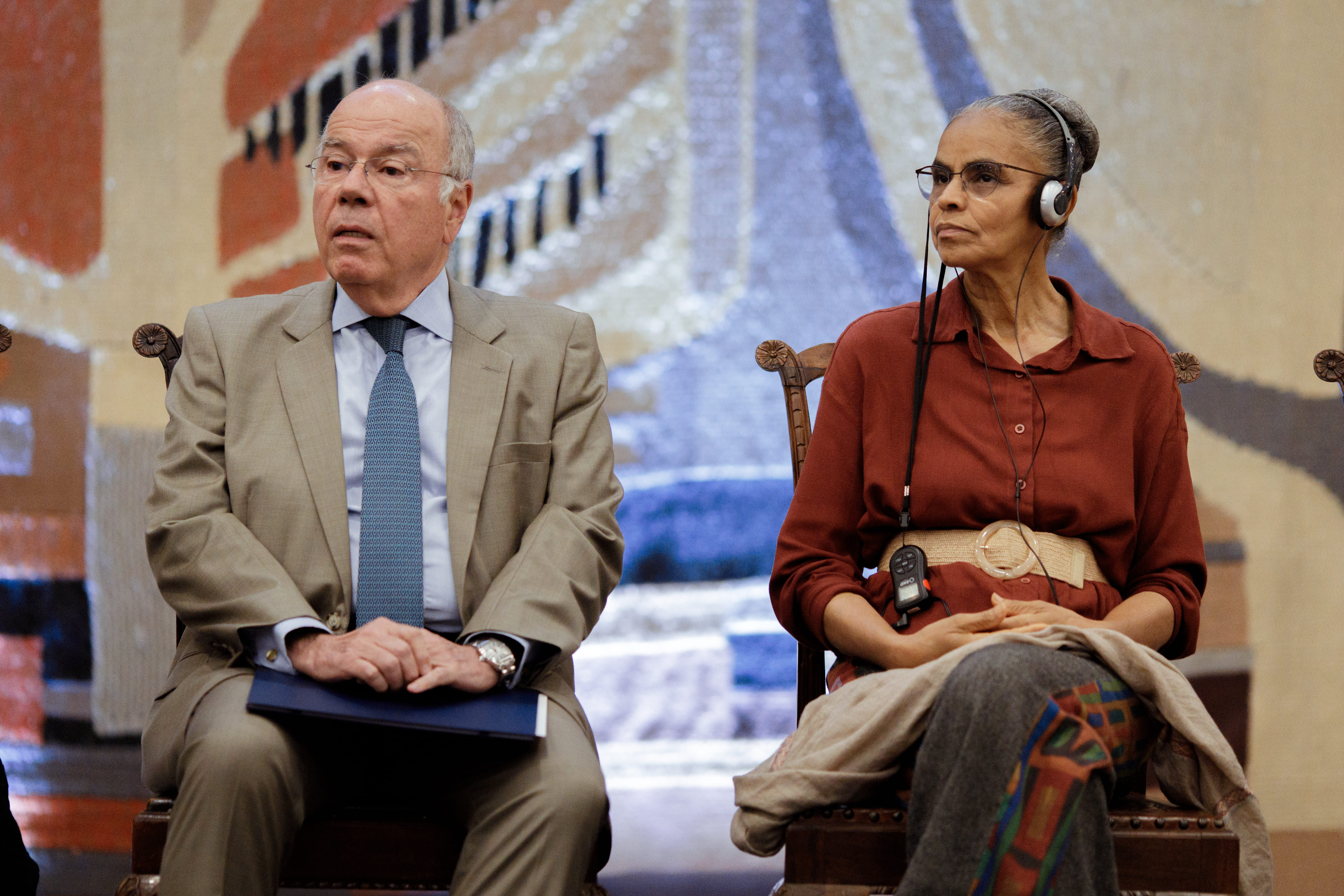0.6°C less: Brasil defends strategies to tackle short-lived pollutants
Reducing methane and black carbon could prevent 0.6°C of warming and save millions of lives. The debate was held at a parallel event to the Climate and Clean Air Conference, which took place in Brasília this week.

By Inez Mustafa | inez.mustafa@presidencia.gov.br
Carbon dioxide (CO2) is the key driver of climate change, according to data from the Climate and Clean Air Coalition initiative, but other pollutants must also be the focus of the debate, such as short-lived climate pollutants (SLCPs), says Mauro Vieira, Brasil's foreign minister. "These gases are responsible for about 45% of the current contribution to global warming," he explains.
Unlike long-lived gases such as CO2, which can remain in the atmosphere for centuries, SLCPs are short-lived, like methane, lasting from days to a few years. In addition, these gases directly affect human health, causing respiratory and cardiovascular problems, according to the Coalition. That's why it's important to work together to mitigate these gases and "avoid a civilizational crisis," warns Marina Silva, Brasil's minister of environment and climate change.
Reducing short-lived gases
According to the Brazilian Chancellor, reducing SLCPs means avoiding 0.6°C of global warming. Sean Maguire, Executive Director of the Clean Air Fund, reiterated that reducing your emissions is one of the fastest ways to slow climate change; with decisive action, measurable results can be achieved in years, not decades.
According to an analysis by the Climate and Clean Air Coalition, global action now will yield benefits by 2050. Sea level rise would be reduced by up to 20% and the polar ice caps would be protected. In terms of health, 2.4 million premature deaths would be avoided and exposure to air pollution and heat would be reduced. In terms of food security, the reduction of short-lived gases would prevent the loss of 52 million tons of crops, improve agricultural productivity, and save USD 33 million per year, according to the initiative's research.
Tackling SLCPs is one of the most direct ways to maximize the shared benefits of climate action and public health, especially for the most vulnerable, such as children and the elderly, adds the Executive Director. "These pollutants not only cause climate change, they also cause deadly air pollution, extreme heat, and more frequent wildfires that harm human health," Maguire said.
The States' role
In Brasil, reducing these gases is at the heart of public policy. Through the ABC Plan (Low Carbon Agriculture), the country promotes sustainable agricultural practices such as the restoration of degraded pastures, the integration of crops, livestock, and forests, and the treatment of animal waste. These practices reduce methane emissions from livestock production. Brasil has also ratified the Kigali Amendment to the Montreal Protocol, which aims to reduce the use of hydrofluorocarbons, gases used in refrigeration and air conditioning that have a high potential to contribute to global warming.
The European Union (EU), one of Brasil's most important strategic and trading partners, has set "Goal 55", an ambitious target to reduce greenhouse gas emissions, including SLCPs, by 55% by 2030. Within this goal is the EU's Methane Strategy, with measures to detect and repair methane leaks in gas and oil infrastructure, and to improve landfill management and biogas capture for energy production.
In addition to domestic agendas, "we need to find ways to integrate efforts from climate agendas such as finance and development, and ensure that these efforts remain a priority even in the most uncertain times," says Maguire.
"COP30 marks a turning point in the global climate regime, moving from a negotiation phase to an implementation phase," concluded Mauro Vieira.
Climate and Clean Air Conference
In 2024 Brasil co-chairs the Climate and Clean Air Conference, held this week in Brasília. Environment Minister Marina Silva, Foreign Minister Mauro Vieira, Sean Maguire, Executive Director of the Clean Air Fund, and Martina Otto, Secretary of the Climate and Clean Air Coalition, participated in dialogues on the first day of the conference.
They discussed powerful but short-lived climate pollutants such as methane, black carbon, hydrofluorocarbons (HFCs), and ground-level ozone. For Vieira, "the actions of this initiative reflect a commitment to sustainable transition, cooperation through multilateralism, and the implementation of innovative solutions to reduce these gases.
English version: Trad. Bárbara Menezes
Proofreading: Enrique Villamil


